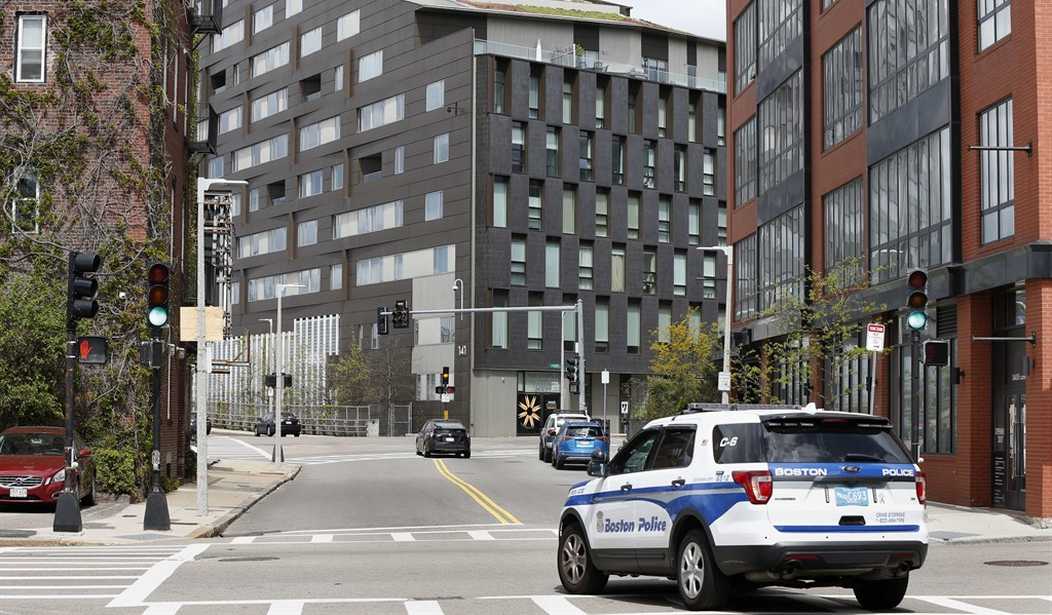Massachusetts has some of the worst gun control laws in the country, but they aren’t having much of an impact on violent criminals, according to a new study from researchers at American University who decided to investigate what happened after the state passed new background check and gun licensing measures in 2014. The state, which already had restrictive gun laws in place along with the highest rate of violent crime in New England, should have seen some public safety benefit if making it harder to legally own a gun were truly effective at reducing violent crime. Unfortunately for the gun ban crowd, that’s not what the research shows.
“Gun violence remains at the forefront of the public policy debate when it comes to enacting new or strengthening existing gun legislation in the United States,” said Janice Iwama, assistant professor of justice, law, and criminology at AU, who conducted the study. “Yet the political polarization and relatively limited scholarly research on guns and gun violence make it difficult for policymakers and practitioners to enact and implement legislation that addresses the public health and safety issues associated with gun violence.”
… Iwama, who authored the study, noted that the entire country, including the Bay State, experienced a drop in crime since the 1990s. Still, Massachusetts had 287,000 violent crimes from 2006 to 2016, including “198,402 aggravated assaults, 70,361 robberies, 19,107 rapes, and 1,698 instances of murder or non-negligent man-slaughter.”
About 1% to 5% of adult residents in each Massachusetts county have a firearms license.
She found that a one percentage point rise in denied licenses and denied licenses due to unsuitability increased robberies by 7.3% and 8.9%, respectively, after the new law took effect. For every other type of violent crime, including rape, murder and aggravated assault, she found no statistically significant change.
Think about that for a second. The only measurable effect that researchers could find after the state imposed new restrictions on the right to keep and bear arms was a significant increase in robberies. There’s no evidence whatsoever that the new laws made anyone safer. On the contrary; it appears to have upped the odds of residents becoming the unarmed victims of armed robbers.
And it’s not like Iwama is a closet Second Amendment activist goosing the statistics here. She makes that clear in her recommendations.
Iwama suggested the issue could be caused by uneven enforcement of the laws across counties, an overall lag in enforcement and/or because residents are obtaining firearms in neighboring states with looser gun laws. She recommended that policymakers revisit the legislation to ensure it’s being property applied and enforced.
Sounds to me like the “issue” is that restricting the rights of law-abiding citizens is never going to be an effective way of combatting violent crime, and the data proves the point. Robberies are going up when the law is being “properly applied and enforced,” not down. You’d think that alone would make Iwama pause before deciding that the problem is “neighboring states with looser gun laws” or a lack of enforcement in Massachusetts itself. Even when the data shows that gun control laws are a failure, though, gun control advocates insist that the problem is that there aren’t enough laws on the books or they just need to be better enforced somehow.
The authoritarian impulse to infringe on the right to keep and bear arms has already cost the state countless residents who’ve fled for greener pastures, as well as companies like Smith & Wesson who are pulling up stakes and relocating their corporate headquarters and much of their manufacturing to states that don’t view them as villains. Now the research shows in addition to the drain on population and tax dollars, these unconstitutional power grabs aren’t even effective in stopping violent criminals. That won’t come as a surprise to many gun owners, but I hope it spurs some Massachusetts voters to ask themselves if the loss of freedom, revenue, personal security, and public safety was really worth it.








Join the conversation as a VIP Member